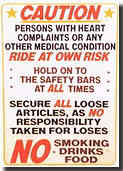Monday, December 28, 2009
10 CD albums I liked in 2009
The most I paid for any of these was $5 for the Holst.
Johannes Brahms: Sextets. Arcata String Quartet with Kikuei Ikeda, Viola, & Peter Rejko, Cello (Vox).
Performance overcomes poor mic placement by the engineers. I turned to this after Brahms' string quartets disappointed me.
Frederick Delius: Violin Concerto & other instrumental works; Tasmin Little, Violin, Welsh National Opera Orchestra Conducted by Sir Charles Mackerras (Argo).
Never cared for Delius until I heard Tasmin.
Gustav Holst, Arnold Schoenberg: The Planets & Transfigured Night, Leopold Stokowski conducting Los Angeles Philharmonic Orchestra with Women's Voices of the Roger Wagner Chorale, & an orchestra assembled in Los Angeles for the Schoenberg. Remastered (EMI Classics).
My favorite Planets as a kid. Superb stereo engineering for 1956 - Stokowski always was up-to-date when he had control, going back to his 1920's RCA records from Camden NJ, & the remastering here follows his original intent for the analog sound, including a long silence at the end of "Neptune." Maybe the best available "Neptune." Within seconds you know Stokowski's "Mars" is modern, mechanized war; "Jupiter" doesn't come across as a fat British squire eating roast beef & singing the praises of Olde England; "Uranus" is is reckless wizard, like Mickey Mouse as the "The Sorcerer's Apprentice" in Fantasia. Stokowski tinkers a bit with the orchestration, no big deal.
Charles Ives: Variations on America; Old Home Days, The Alcotts. The "President's Own" United States Marine band (Naxos).
All inventions of the arrangers, but most of Ives' music as we hear it today is hypothetical, & Ives scholars over the past 30 years have made his music less "dense." I believe Charlie would've loved this. Why don't they play this music during the 4th of July Fireworks in D.C.?
Franz Liszt / Ludwig Beethoven: Symphonies Nos 4 & 6 transcribed for piano; Konstantin Scherbakov, piano. (Naxos).
This is great fun. Liszt idolized Beethoven, & he arranged the 9 not as showpieces but to introduce pianists & audiences to music they couldn't hear performed by an orchestra.
Ralph Vaughan Williams: Mass in G Minor, Motets & Psalms; Elora Festival Singers (Naxos).
Vaughan Williams described himself as a "cheerful agnostic" & even there I think he was just trying to be inoffensive. No way he would let personal belief keep him from composing for Great Britain's choirs & choruses, which he loved & could conduct if he wished. The Mass is suitable for Anglican liturgy. Vaughan Williams did decline prestigious commissions for coronation marches, & was never knighted. The Elora Festival Singers are Canadian & very good.
***
Billie Holiday: Rare Live Recordings 1934-1959 (ESP-Disk, 5 CD Box, produced by Michael Anderson).
When this arrived in the mail, a gift courtesy of an of old friend at ESP, I knew immediately I wasn't up to reviewing it in detail. There were no strings attached. What a treasure! It's a completetist package & a chronological history supplementing Billie's studio recordings. Radio airchecks, concert tapes, movie & TV appearances. I listen to it in the spirit of accepting whatever happens next, like a radio show, regardless of importance, quality of performance, sound, or material. May have helped that I've misplaced the insert booklets with the track listings. They'll turn up eventually. Billie's personal life was a mess, she tore her voice up by Disk 5 but still could wrap it around a song.
George Wright: George Wright Goes South Pacific, (Boston Skyline, Reissue of the 1958 Hi Fi LP in stereo, with 7 bonus cuts).
When I tout this as a Fifties pop classic, I mean in the original vinyl LP. Everything about it sprung from Wright's imagination or passed his approval; concept, arrangements, cover art & design, stereo production. Wright didn't view himself mainly as a purveyor of nostalgia & sonic novelties, although those were part of his act. This is just a CD reissue. Why does Richard Rodgers translate better to a theater Wurlitzer than Gershwin, rag, or even Lerner & Lowe? Because Rodger's melodic inspiration came from Brahms, Tchaikovsky, Johann Strauss, Rachmaninoff, Rimsky Korsakov, operetta &, as I hear it, especially Grieg, classical piano bench music of his youth. The only "jazzy" song in this score, "Honey Bun," is also the clumsiest. Pop singers have to make Rodgers swing, he rarely composed 'em that way. George Wright's LP reveals great American carousel music, marketed like goofy Fifties exotica.
Charles Ives: Piano Music. Piano Sonata No 1; Piano Sonata No. 2 "Concord," Four Emerson Transcriptions, other works. Performed & with liner notes by Nina Deutsch. (Vox Box, o/p)
Ives' aesthetic, writings, compositional methods, & own recordings validate every conscientious performance of his piano music. Scholarship - educated guesses & choices - have refined Ives over the past 40 years. The Ives we hear in recent recordings is not the same Ives people used to hear. This was a brave 1976 recording by an obscure American pianist (whose most recent CD is of Bob Dylan songs). In the CD release it even competed with another Ives Vox Box by Alan Mandel, still available. Like other earlier recordings (including some much venerated), this one has been pushed aside & forgotten. Of course, Pierre-Laurent Aimard performs the Concord "better" than John Kirkpatrick. Joanna MacGregor performs Sonata No. 1 "better" than Noel Lee's version (but not, I think, better than William Masselos). The farther back we go in recording history, the greater the difficulties performers had in pulling together & mastering working copies of Ives scores. Deutsch's Concord was released around the same time as Gilbert Kalish's acclaimed Nonesuch recording. She knew both Kirkpatrick & Masselos, did her own research & editing. She even performed "The Alcotts" on The Joe Franklin Show. I treasure Deutsch mainly for Sonata No. 1, a wonderful American mash up in her hands, & her piano arrangement of "Variations on America."
One more to make it ten:
Dean Martin: A Winter Romance (Capitol, 1959)
Johannes Brahms: Sextets. Arcata String Quartet with Kikuei Ikeda, Viola, & Peter Rejko, Cello (Vox).
Performance overcomes poor mic placement by the engineers. I turned to this after Brahms' string quartets disappointed me.
Frederick Delius: Violin Concerto & other instrumental works; Tasmin Little, Violin, Welsh National Opera Orchestra Conducted by Sir Charles Mackerras (Argo).
Never cared for Delius until I heard Tasmin.
Gustav Holst, Arnold Schoenberg: The Planets & Transfigured Night, Leopold Stokowski conducting Los Angeles Philharmonic Orchestra with Women's Voices of the Roger Wagner Chorale, & an orchestra assembled in Los Angeles for the Schoenberg. Remastered (EMI Classics).
My favorite Planets as a kid. Superb stereo engineering for 1956 - Stokowski always was up-to-date when he had control, going back to his 1920's RCA records from Camden NJ, & the remastering here follows his original intent for the analog sound, including a long silence at the end of "Neptune." Maybe the best available "Neptune." Within seconds you know Stokowski's "Mars" is modern, mechanized war; "Jupiter" doesn't come across as a fat British squire eating roast beef & singing the praises of Olde England; "Uranus" is is reckless wizard, like Mickey Mouse as the "The Sorcerer's Apprentice" in Fantasia. Stokowski tinkers a bit with the orchestration, no big deal.
Charles Ives: Variations on America; Old Home Days, The Alcotts. The "President's Own" United States Marine band (Naxos).
All inventions of the arrangers, but most of Ives' music as we hear it today is hypothetical, & Ives scholars over the past 30 years have made his music less "dense." I believe Charlie would've loved this. Why don't they play this music during the 4th of July Fireworks in D.C.?
Franz Liszt / Ludwig Beethoven: Symphonies Nos 4 & 6 transcribed for piano; Konstantin Scherbakov, piano. (Naxos).
This is great fun. Liszt idolized Beethoven, & he arranged the 9 not as showpieces but to introduce pianists & audiences to music they couldn't hear performed by an orchestra.
Ralph Vaughan Williams: Mass in G Minor, Motets & Psalms; Elora Festival Singers (Naxos).
Vaughan Williams described himself as a "cheerful agnostic" & even there I think he was just trying to be inoffensive. No way he would let personal belief keep him from composing for Great Britain's choirs & choruses, which he loved & could conduct if he wished. The Mass is suitable for Anglican liturgy. Vaughan Williams did decline prestigious commissions for coronation marches, & was never knighted. The Elora Festival Singers are Canadian & very good.
***
Billie Holiday: Rare Live Recordings 1934-1959 (ESP-Disk, 5 CD Box, produced by Michael Anderson).
When this arrived in the mail, a gift courtesy of an of old friend at ESP, I knew immediately I wasn't up to reviewing it in detail. There were no strings attached. What a treasure! It's a completetist package & a chronological history supplementing Billie's studio recordings. Radio airchecks, concert tapes, movie & TV appearances. I listen to it in the spirit of accepting whatever happens next, like a radio show, regardless of importance, quality of performance, sound, or material. May have helped that I've misplaced the insert booklets with the track listings. They'll turn up eventually. Billie's personal life was a mess, she tore her voice up by Disk 5 but still could wrap it around a song.
George Wright: George Wright Goes South Pacific, (Boston Skyline, Reissue of the 1958 Hi Fi LP in stereo, with 7 bonus cuts).
When I tout this as a Fifties pop classic, I mean in the original vinyl LP. Everything about it sprung from Wright's imagination or passed his approval; concept, arrangements, cover art & design, stereo production. Wright didn't view himself mainly as a purveyor of nostalgia & sonic novelties, although those were part of his act. This is just a CD reissue. Why does Richard Rodgers translate better to a theater Wurlitzer than Gershwin, rag, or even Lerner & Lowe? Because Rodger's melodic inspiration came from Brahms, Tchaikovsky, Johann Strauss, Rachmaninoff, Rimsky Korsakov, operetta &, as I hear it, especially Grieg, classical piano bench music of his youth. The only "jazzy" song in this score, "Honey Bun," is also the clumsiest. Pop singers have to make Rodgers swing, he rarely composed 'em that way. George Wright's LP reveals great American carousel music, marketed like goofy Fifties exotica.
Charles Ives: Piano Music. Piano Sonata No 1; Piano Sonata No. 2 "Concord," Four Emerson Transcriptions, other works. Performed & with liner notes by Nina Deutsch. (Vox Box, o/p)
Ives' aesthetic, writings, compositional methods, & own recordings validate every conscientious performance of his piano music. Scholarship - educated guesses & choices - have refined Ives over the past 40 years. The Ives we hear in recent recordings is not the same Ives people used to hear. This was a brave 1976 recording by an obscure American pianist (whose most recent CD is of Bob Dylan songs). In the CD release it even competed with another Ives Vox Box by Alan Mandel, still available. Like other earlier recordings (including some much venerated), this one has been pushed aside & forgotten. Of course, Pierre-Laurent Aimard performs the Concord "better" than John Kirkpatrick. Joanna MacGregor performs Sonata No. 1 "better" than Noel Lee's version (but not, I think, better than William Masselos). The farther back we go in recording history, the greater the difficulties performers had in pulling together & mastering working copies of Ives scores. Deutsch's Concord was released around the same time as Gilbert Kalish's acclaimed Nonesuch recording. She knew both Kirkpatrick & Masselos, did her own research & editing. She even performed "The Alcotts" on The Joe Franklin Show. I treasure Deutsch mainly for Sonata No. 1, a wonderful American mash up in her hands, & her piano arrangement of "Variations on America."
One more to make it ten:
Dean Martin: A Winter Romance (Capitol, 1959)
Labels: music
Comments:
<< Home
"If a nation expects to be ignorant and free, in a state of civilization, it expects what never was and never will be." Thomas Jefferson
thank you very much for your interest in my ives recordings of 1976. The journey from Ives to Bob Dylan has been extraordinary.
Best wishes,
Nina Deutsch
Post a Comment
Best wishes,
Nina Deutsch
<< Home















